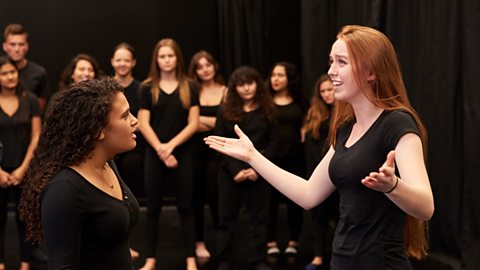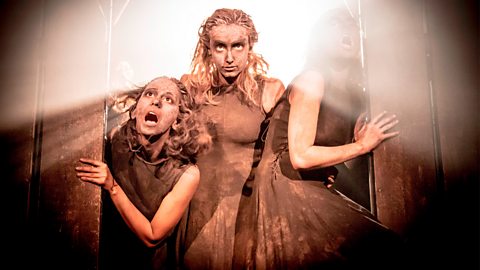Writing about drama and theatre
Describing body language
Body language reveals a lot about what a person is really thinking. Non-verbal communication such as facial expressions, gestures and movement are therefore powerful tools for actors.

Describing costume
Choosing the correct costumes for characters is vital in both period and modern plays. They must be appropriate to the time and culture in which a drama is set and to the status of the characters.

Describing facial expressions
Facial expressions can tell us a lot about characters, situations and subtext. It's important that you learn what they reveal about emotions and moods, and how to create and describe them.

Describing voice
The voice is a powerful tool in drama. When you describe vocal work, consider elements such as pitch, pace, projection and intonation. Characters should always use a suitable language register.

The world of the play
The world of the play is its cultural and historical context as well as the characters' situation and relationships. Old plays can be reinterpreted and their time and setting changed.

Writing about and evaluating theatre
When you're writing a review or an evaluation, don't just consider the acting and performance. Pay attention to the set, costumes, lighting and sound - and always justify your opinions.

Links
- External linkExternal link
- External linkExternal link
- SubscriptionSubscription